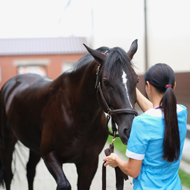New Insights for Mixed Breed Dog Population?
DIY DNA kits may offer insights for mixed breed owners.
Where does Max get his curly tail from? Why does he love digging holes in the garden? A dog’s DNA holds many answers. The new do-it-yourself doggy DNA test kit from Mars Veterinary, namely Wisdom Panel Insights, made its debut today at the British Small Animal Veterinary Association (BSAVA) Congress.
Roughly one million dogs in the UK are mixed breed and it’s likely that many owners are unsure of their pet’s breed composition. With the simple swipe of a cheek swab, Wisdom Panel Insights can determine the ancestry of a mixed-breed dog by testing for more than 170 breeds, the largest database of any canine DNA test on the market. Within three weeks, dog owners will be e-mailed an official Ancestry Report that reveals the dog’s genetic background.
A dog’s ancestry can influence him in surprising ways. Obvious and not-so-obvious physical traits plus behaviours like digging, herding and barking all come from the various breeds in a dog’s family tree. Once an owner understands a dog’s natural tendencies, it makes it possible to create a tailored training, exercise and nutrition program to fit his one-of-a-kind needs.
“We’re excited to give dog owners easy and affordable access to the best-in-class canine genetic analysis to help them understand what breeds make their dog so special,” said Neale Fretwell, PhD, Director, Research and Development at Mars Veterinary and one of world’s foremost experts on companion animal genetics. “But it’s not just about curiosity. The smarter you are about your dog’s past, the smarter you can be about his future.”



 The BEVA has opened two new roles on its Nurse Committee.
The BEVA has opened two new roles on its Nurse Committee.